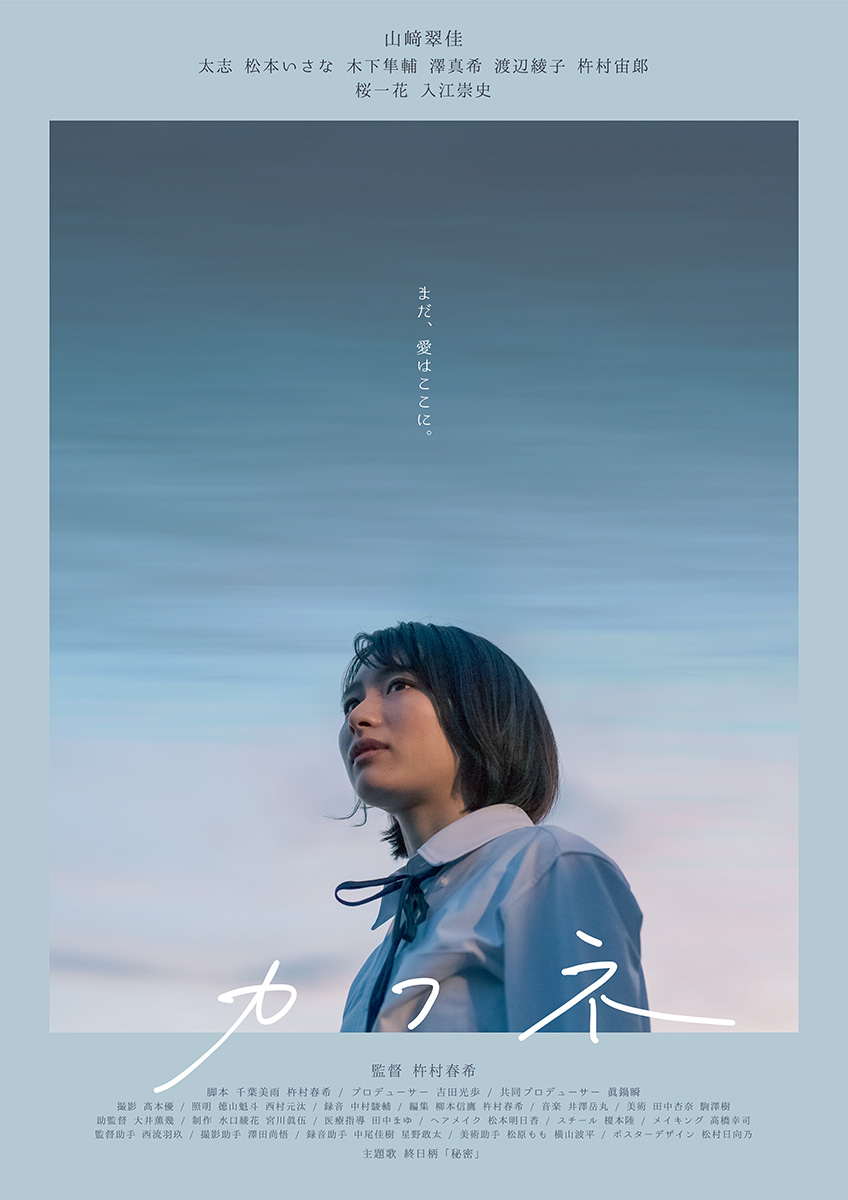
A pair of teenagers with differing priorities struggle to deal with the discovery of an unplanned pregnancy in Haruki Kinemura’s evenhanded indie drama Cafune (カフネ). Refreshingly progressive, the film is careful never to characterise the pregnancy as a tragedy or in anyway shameful but centres more on the decisions it forces the teens to make about themselves and their futures rather than fixating on the transience or longevity of teenage love.
Love is the answer Mio gives when her mother quizzes her over the pregnancy test she found shoved into a black plastic bag hidden at the back of a drawer. There’s no getting away from the fact her mother thinks she’s been foolish and is disappointed to have found out this way, but at the same time she’s not exactly scandalised and is clear that it’s Mio who has a decision to make both for herself and for her unborn child without trying to influence her either way. As for the baby’s father, Nagisa, he does not react anywhere near as well, suddenly trashing his room and flailing around in frustration even though his own mother has been almost as sympathetic as Mio’s despite a similar level of disappointment with him. Though part of that may be that she knows he’s also been carrying on with Mio’s friend Natsumi which would explain the dirty look she gives him on meeting Mio on the way out as she leaves in a hurry after failing her first attempt to tell him about the baby.
Mio certainly has a point when she tells Nagisa that he’s immature and self-centred. He’s been bunking off school for weeks while supposedly studying at home for an important exam and seems to have a mild superiority complex. Just as she was going to tell him about the baby he announces that they should take a break so he can study harder, leaving her to handle all of this on her own while also beginning to suspect that he’s been cheating on her which makes her situation all the more difficult. “Am I the only one who’s been irresponsible?” she asks him when he reacts badly to the news about the baby, blaming Mio for this sudden crisis right before his exam as if he had no part in it at all. Mio already seems to suspect that whatever her decision she can’t rely on Nagisa to take responsibility even while making it clear that it’s not something she feels she can decide unilaterally.
Then again as she later says, maybe happiness isn’t something you can just decide either. The conclusion that she comes to is that she should make herself happy rather than waiting around for someone else to do it for her and even if Nagisa promises to make her happy in the future it’s partly for selfish reasons, as much for himself as for her in proving a point of masculine pride. In any case, the solution which is found is in itself refreshingly mature requiring no particular sacrifice for either party as each is allowed to pursue their individual hopes for the future without resentment or recrimination.
Mio is also able to repair her relationship with possibly treacherous best friend Natsumi who in the end was only jealous fearing that she would lose Mio as a friend now that she has a lover while failing to realise that there is someone else to whom she’s currently “number one”. Largely free of the sense of judgment that often colours teen pregnancy drama, Kinemura’s gentle coming-of-age tale instead discovers an unexpected well of support across the generations as the teens take centre stage in shaping their decisions not just for the present moment but for their mutual futures in figuring out who they are, what they want out of life, and what is best both for themselves and for the baby. Making the most of its tranquil fishing village setting, the film gradually makes its way towards a kind of serenity as the friends play together on the beach beset as it is by roaring waves but also a gentle kind of happiness.
Cafune had its World Premiere as part of this year’s Osaka Asian Film Festival.
Original trailer (no subtitles)
